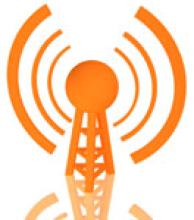Image


This past week, we’ve had quite the discussion around Cecilia Kang’s WashPo piece describing a plan by the FCC to create a national WiFi network by making the right decisions about how to allocate spectrum between licenses for auction and what to leave available for the unlicensed TV white spaces (“TVWS” aka “Super WiFi” aka “Wifi on steroids”). As Kang describes, the FCC’s opening of sufficient spectrum for TVWS could lead to “super WiFi networks (emphasis added) around the nation so powerful and broad in reach that consumers could use them to make calls or surf the Internet without paying a cellphone bill every month.” Needless to say, the article faced much pushback, despite a subsequent Washpo clarification to indicate the FCC was not, actually, planing to build a network. Amidst the various critics, there were some general defenders of the concept. My colleagues at EFF noted that increasing the availability of open spectrum for WiFi-type uses , and my friends at Free Press argued that such a free public wifi network (or, more accurately, series of networks) is in fact possible if the FCC makes enough good quality spectrum, suitable for broadband and usable out doors, available on an unlicensed basis. I will now go a step further than any of my colleagues. I will boldly state that, if the FCC produces a solid 20 MHz of contiguous empty space for TV White spaces in the Incentive Auction proceeding, or even two 10 MHz guard channels that could nationally produce two decent sized LTE-for unlicensed channels, then we will have exactly the kind of free publicly available wifi Kang describes in her article. Or, “Yes Cecilia, there really is free national public wifi. Don’t let the haters and know-it-alls tell you otherwise.” ...
 I wrote a much shorter, far less impressive piece for the Media Action Grassroots Network that embraces a similar argument:
I wrote a much shorter, far less impressive piece for the Media Action Grassroots Network that embraces a similar argument:
You know how you can buy a simple little device for as little as $30 now to set up your own Wi-Fi network that creates an easy in-home network? Imagine if your neighborhood could do that too! Wi-Fi works in your home because the federal government, which manages how the public airwaves are divided for various uses, decreed that a small slice of spectrum would be unlicensed - sitting there for anyone to use however they wanted. But that spectrum is not suited for a neighborhood-wide network. ...And we have seen others take notice as well, including the Baltimore Sun Editorial Staff:
The companies who oppose the FCC's plan argue that the agency's mission to serve the public interest would best be achieved through the revenues from an auction of the airwaves. The last such auction, in 2008, generated nearly $20 billion for the government. That's a substantial amount of money, to be sure, but the relatively small portion of the spectrum that the commission now proposes to leave open to unlicensed use would be worth only a fraction of that — a pittance compared to the economic activity that could be generated through the creation of new products and services to take advantage of the unlicensed spectrum.
